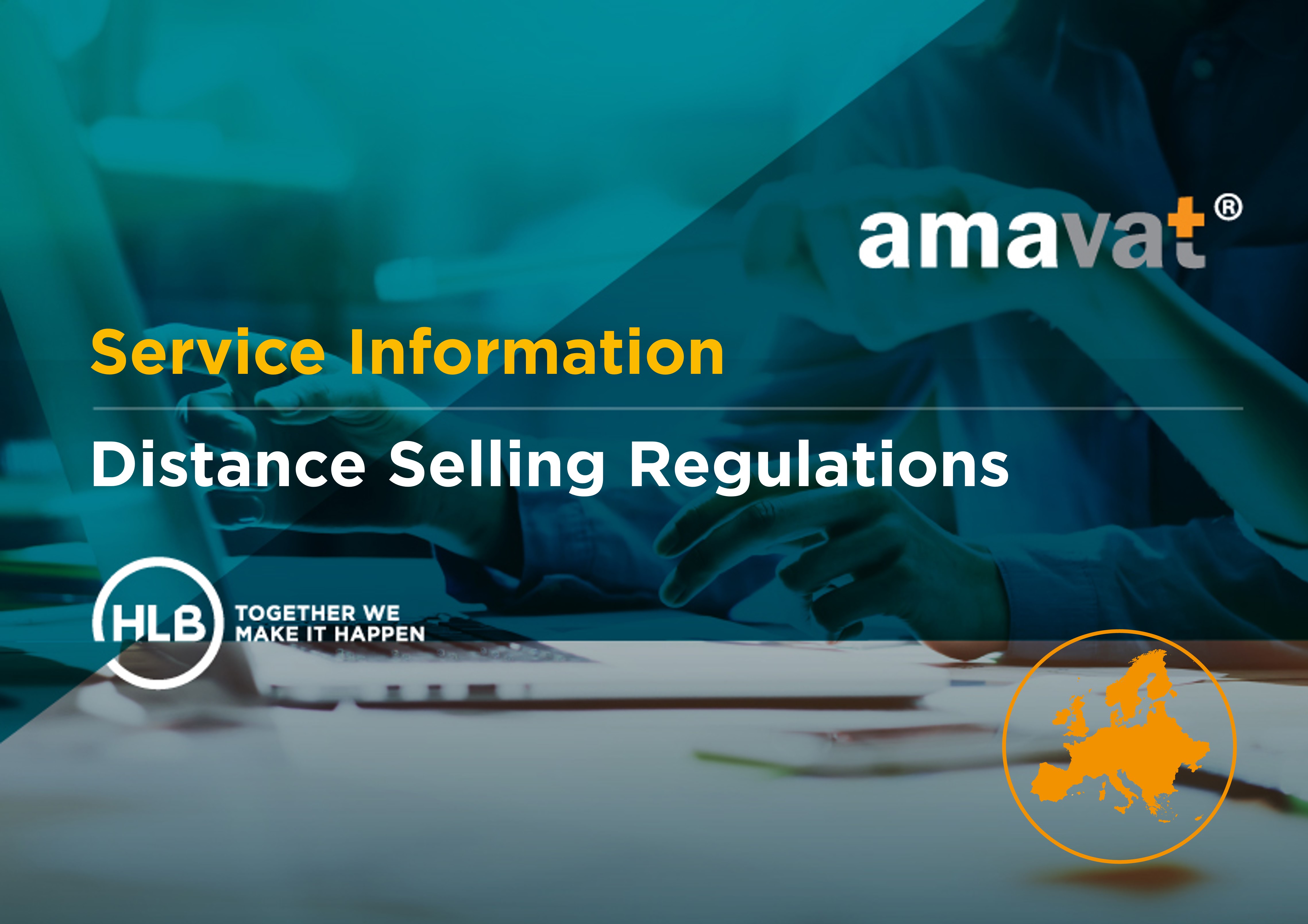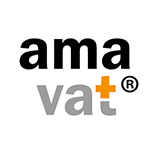amavat® Service Information | Distance Selling Regulations

Distance Selling Regulations: Explanation, the Requirements and the Exemptions 2019
Distance Selling – What Is It?
It means sales that are purchased not face-to-face, but typically traded online via online mail order services. As you might know, ‘VAT Registrations’ are essential either when you set-up a business, or even store your goods in a European warehouse and, which is frequently overlooked, when you reach the ‘Annual Threshold Limit‘ of an EU country.
Distance Selling – Threshold Limit (VAT)
VAT duties are initiated by ‘Distance Selling’. Every EU Member State has its own ‘Distance Selling Threshold’ and once this limit is achieved within a calendar year, the seller has to get an additional VAT number in the country of import.
Due to the fact that VAT is a tax which has to be paid by the final consumer, EU countries will expect e-Commerce businesses to register with them, so that they are able to make these businesses pay the local VAT.
Please bear in mind: For electronic or digital services to consumers there are no ‘Distance Selling Thresholds’.
The key reason behind these “VAT Registration Thresholds” was to lessen the administrative spending for companies and to inspire them to develop and to expand to other EU countries.
| VAT treshold limits: | |||
|---|---|---|---|
| Austria | 35,000 € | Italy | 35,000 € |
| Belgium | 35,000 € | Latvia | 35,000 € |
| Bulgaria | 70,000 BGN | Lithuania | 35,000 € |
| Croatia | 270,000 HRK | Luxembourg | 100,000 € |
| Cyprus | 35,000 € | Malta | 35,000 € |
| Czech Republic | 1,140,000 CZK | Netherlands | 100,000 € |
| Denmark | 280,000 DKK | Poland | 160,000 PLN |
| Estonia | 35,000 € | Portugal | 35,000 € |
| Finland | 35,000 € | Romania | 118,000 RON |
| France | 35,000 € | Slovakia | 35,000 € |
| Germany | 100,000 € | Slovenia | 35,000 € |
| Greece | 35,000 € | Spain | 35,000 € |
| Hungary | 8,800,000 HUF | Sweden | 320,000 SEK |
| Ireland | 35,000 € | United Kingdom | 70,000 £ |
Distance Selling – Guidelines within the EU
There are many rules and guidelines for ‘Distance Selling’ in Europe. It is very important that you know, so that you on the safe side when it comes to taxation and VAT. The ‘Distance Selling’ Regulations (DSRs) relate to all distance sales. The purpose of the DSRs is to safeguard of the consumers throughout the EU sector.
Distance Selling – The List of Regulations
Below is a brief list of regulations that relate to ‘Distance Selling’ and what you as the seller are necessary to provide to the customer:
- There should be clear information about the goods or services in advance of the purchase (the Pre-Purchase Information);
- A right to cancel orders within 7 days;
- To provide written information after the goods/services are purchased;
- The right to have goods or services provided inside 30 days after the order was sent (unless otherwise agreed);
- If goods or services are not provided on the agreed delivery date, then a refund on this condition;
- The right to a refund if the payment was not authorised.
Distance Selling – The Legal Requirements
Online sellers must comply with the Consumers Right Act 2015. When receiving consumer’s personal information, you must also comply with the Data Protection Act 1998.
- Your Business Name, Contact Address and e-Mail Address;
- Business Telephone Number (stating the costs of calling the number if it is above standard rates);
- VAT Number (if applicable);
- Limited Companies;
- Full Description of Goods or Services;
- Your Terms and Conditions;
- Privacy and Cookie Policy;
- Contract Period (if applicable);
- The Selling Price (including taxes);
- Any Sales Offers;
- The Delivery Costs;
- Your Accepted Payment Methods;
- Any Cancellation Information; and
Substitute Goods.
Distance Selling – Exceptions for B2C and B2B
For B2C
The exception for B2C is not exceeding the €10,000.00 in cross-border sales within one calendar year, this means that the local VAT rate (the VAT rate of your home country) applies for those sales.
When you exceed the limit, then the VAT rate of the country of import will be charged. So before you achieve the ‘Annual Threshold Limit’ which makes a further ‘VAT Registration’ compulsory, there is also a limit that changes which VAT rate applies.
For B2B
Briefly speaking, when it comes to B2B sales via ‘Distance Selling’, the VAT rate of the country of import applies.
You can find out more by clicking below via this link to the European Commission explaining the ‘Distance Selling Directive’.
Simple and Clear VAT Compliance for Online Sellers. Throughout Europe.
amavat® help businesses throughout Europe with their cross-border trade by taking over the complexities of managing VAT and other indirect tax obligations. We ensure that our clients meet their compliance obligations around the EU and beyond. amavat® specialises in providing clients with bespoke VAT reviews that help them develop into new territories, with the appropriate controls in place to manage VAT effectively. We are continually developing our expertise in international VAT, whether you are an established company or an entrepreneurial online seller, amavat® will provide cross-border supply advice, while giving practical solutions.
Our Strengths:
- Clients are served personally by service advisors of our partner firms.
- With us, you have a personal contact person.
- We very much have a hands-on approach, not acting as just an agent confirming our work.
- We speak your language.
- We are personal accounting offices, serving more than just standard processes.
- We are never far away.
Our VAT Compliance experts are here to help bring your EU online business dreams to life.
If you have any further questions, please do not hesitate to contact us.
The information contained above is of a general nature and does not concern the situation of a specific company. Due to the speed of changes occurring in EU legislation, we kindly ask you to determine, on the date of this information, whether it is still up to date.





